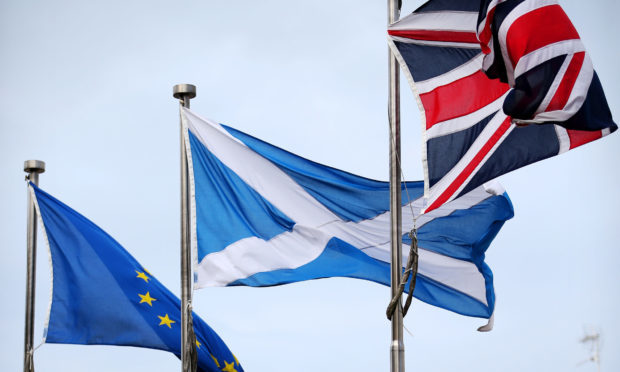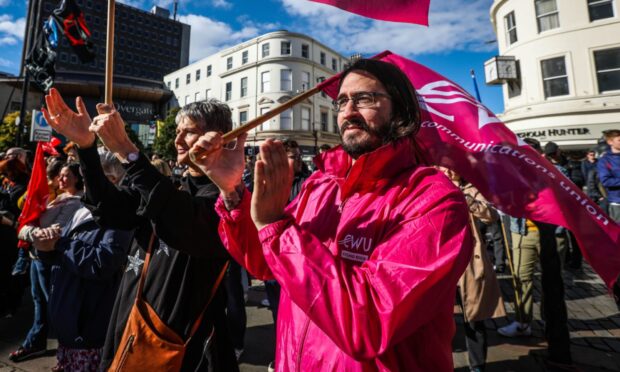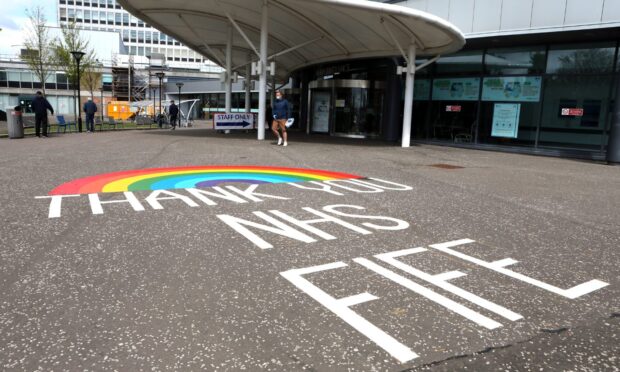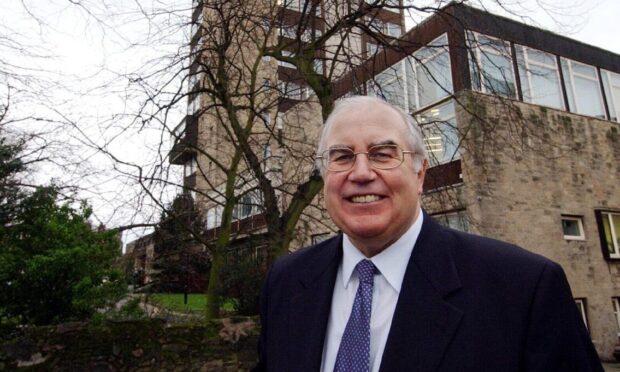Holyrood faces being overruled by Westminster after MSPs refused to support key Brexit legislation.
The Scottish Parliament voted to deny consent for the UK Government’s Withdrawal Bill, which transfers EU laws onto domestic statute books.
All Holyrood parties except the Scottish Conservatives rejected the Downing Street plan to hold some returning devolved powers at Westminster.
But the British and Scottish administrations said there is still the opportunity to strike a deal.
Michael Russell, the Brexit Secretary, said Conservative ministers want to “muzzle” the Scottish Parliament with their “power grab”.
“They want to ignore the reality of devolution,” Mr Russell told parliament. “They want to drown out what this parliament says.
“But not even they can pretend that no motion has been passed.”
MSPs supported a motion to deny consent by 93 votes to 30 on Tuesday night.
Adam Tomkins, the Scottish Conservative MSP, said Nicola Sturgeon wants a “political crisis to provide cover for her independence drive”.
“The SNP has taken the wrong path today,” he said. “It’s deeply disappointing that the leaders of Labour and the Lib Dems have helped them do it.”
The Withdrawal Bill covers devolved areas so requires the approval of Holyrood, under a legally-enshrined convention of the devolution settlement.
However, the Scotland Act maintains that Westminster is sovereign and can override refusal in circumstances that are not “normal”.
Westminster has never previously ploughed on with legislating in devolved areas without securing Holyrood’s consent.
Ahead of the vote, Scottish Secretary David Mundell has repeatedly refused to be drawn on whether UK ministers would do that.
David Lidington, the UK minister in charge of negotiations with Scottish counterparts, said he was “open to suggestions that would improve the bill”.
He said: “I welcome and will consider any practical variations on the devolution provisions of the bill that you may have that will help deliver both the maximum legal certainty and reassurances to the devolved authorities.”
Mr Russell said the UK Government can break the deadlock by removing the clause in the bill “that fundamentally undermines devolution and to proceed on the basis of agreement”.
Neil Findlay, Scottish Labour’s Brexit spokesman, said: “The people of Scotland want this mess fixed and even after this vote there is still time to do that.
“It is welcome that both the UK and Scottish Government have agreed to cross-party talks to resolve this deadlock and this must begin urgently.”
The bill is before the Lords on Wednesday ahead of its return to the Commons for final voting.
Q&A
What is this row between the Scottish and UK governments all about?
Brexit means powers that have been exercised by Brussels returning to the UK. The dispute is about what should happen to them next.
The Scotland Act explicitly stated anything not specifically reserved to Westminster is devolved.
As such, the Scottish Government insists all these powers should come to it, hence the claim from SNP ministers that the EU Withdrawal Bill is a “power grab”.
However the UK Government argues it needs to hold some powers – on a temporary basis – to allow common UK arrangements to be set up in areas such as fishing and farming.
What is legislative consent and why does it matter anyway?
Devolved administrations must give consent for Westminster to legislate in areas they would normally do so.
As the EU Withdrawal Bill covers areas which are devolved, the parliaments in Edinburgh and Cardiff are required to vote on this.
However even if Holyrood votes to refuse consent, Westminster can still introduce the legislation anyway.
How can it be the case that Westminster can introduce legislation against the will of the Scottish Parliament?
The Sewel Convention states Westminster “would not normally legislate with regard to devolved matters in Scotland without the consent of the Scottish Parliament”.
But, when campaigner Gina Miller challenged the Government over the triggering of Article 50 in the UK Supreme Court, it concluded this was not a rule which could be enforced.
Has Westminster ever pushed through legislation against Holyrood’s wishes before?
No. When the UK Government was taking welfare reforms through Parliament, MSPs withheld consent for part of this legislation. On that occasion the UK Government responded by removing those parts of the Bill.










